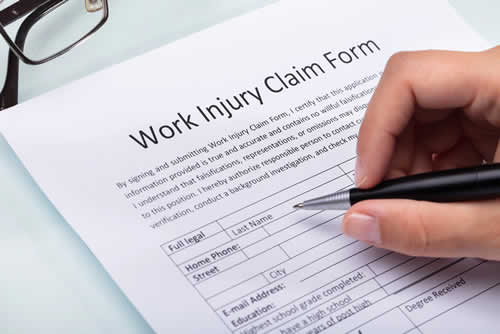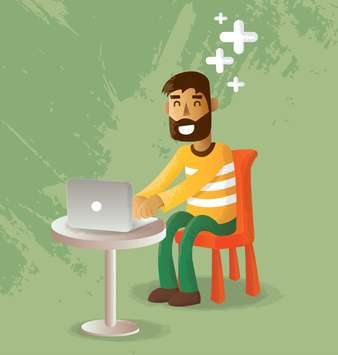Recovering from a workplace injury can feel like a massive disruption, both physically and emotionally. You may worry about all sorts of things: lost income, job security, or simply getting back to where you were.
A study published in the
Journal of Korean Medical Science looked at levels of self-esteem among people who had occupational injuries or diseases. And it showed that 3.1% of participants showed decreasing self-esteem during their recovery, which reflects the negative effect that physical trauma often carries. This means attending to these issues is absolutely necessary to regaining a stable footing – that's both at work and in everyday life. In this article, we look at how to stay confident and proactive after an injury, including when and how to seek legal advice if you need to.

Rebuilding Self-Esteem in the Recovery Phase
Self-esteem tends to suffer when you can't do things you used to handle easily. It's possible that even something as routine as traveling to work or typing a report can become challenging if you're dealing with severe pain or restricted movement. If this is the case, to rebuild confidence, it's best to start by looking at small, achievable milestones. Don't be put off if they're simple, like walking a bit further each day or completing short work-related jobs at home.
Every journey starts with the first step – quite literally sometimes. And of course admire the steps you've made instead of fixating on what you maybe can't do yet. Incremental victories reaffirm that you're on your way back, and this allows a positive mindset to take root.
Setting Boundaries and Communicating Needs
Assertiveness in the context of recovery doesn't mean pushing yourself beyond safe limits; it means backing your well-being and clarifying what you can – and can't – do. If your boss or teammates expect immediate normality once you return to work, you may need to gently but firmly explain your current capacity.
Some jobs might be doable, while others remain off-limits for a while. By speaking openly with management, you can often ask for modified duties, reduced hours, or extra breaks, so everyone gets a realistic sense of what's possible. Clear communication doesn't just guard against re-injury, but also shows professional maturity.
Getting the Right Legal Advice
But with this said, in some situations, especially when workplace negligence may be an issue, you may need to look for a legal professional. They will examine whether your employer followed safety protocols, offered adequate safeguards, or even maintained the right level of insurance.

This can involve jobs way beyond your abilities. Things like gathering medical records, interviewing witnesses, or negotiating with insurance adjusters. And don't worry: this won't automatically mean you'll end up in a drawn-out lawsuit. In fact, good legal guidance can speed up resolutions by providing both parties a clear way forward.
Personal Worth Is About More Than Job Performance!
Many people judge themselves in terms of what they've achieved in their career. If this is the case with you, and an injury limits your productivity, this foundation can be rattled! So remind yourself how you contribute more than just your time or labor input: you bring insights, problem-solving skills, and a unique perspective shaped by your own experiences. That's worth something, isn't it?
So spend time rediscovering personal interests or attending to relationships outside of work. Maybe there's a hobby you've neglected; maybe you've previously volunteered in a community project. If not, think about taking them up for the first time! When you align your self-esteem with different aspects of your identity, you'll make sure that a physical setback doesn't undermine your entire sense of identity. And of course when you take this approach, you'll find how resilience increases, as you realize your worth remains intact even if you're on reduced duties for a while.

Protecting Yourself from Self-Doubt
It's important to shield yourself from the pitfalls of self-doubt, especially when you're still recovering. This could include scheduling regular updates with your line manager, where you assess progress and note any difficulties. If you're returning in a phased manner, make sure that everyone is clear on when stepping up responsibilities should happen; this way, you're neither bored nor overloaded. You may even be able to cross-train your co-workers to ease the transition.
Understanding the Emotional Toll of Workplace Injuries
Injuries often set off a
whole range of emotional responses. There could be frustration at being sidelined, anxiety about returning to full capacity, or even guilt if co-workers are saddled with extra tasks. But don't be alarmed: these feelings are normal, especially if your self-worth has been closely tied to job performance.
People recovering from serious incidents – like falls, repetitive strain injuries, or machinery accidents – can often feel cut off from their usual routines and social bonds in the workplace. It can also be quite hard to
get legal advice for a “trip and fall” claim because there are so many ineffective and/or misleading lawyers and firms out there! You really need to find one with a strong track record…

If you'd like to learn more about assertive behavior, why not take a look at how we can help?
Boost your assertiveness and self confidence with our online courses.
RRP from $33 – limited time offer just $12.99
Practical Tips for Sustained Growth
As you can see, building assertiveness and self-esteem after an injury isn't about single, grand gestures. It's the small, consistent actions that work in a cumulative way. Here are a few suggestions for what to do:
- Schedule Self-Check-Ins: Set weekly reminders to look at your physical progress and emotional well-being.
- Log Small Wins: Note daily achievements: things like re-learning a basic task or experiencing less fatigue than last week.
- Seek Peer Support: Join online forums or local groups focused on workplace injuries and recovery.
- Stay Physically Engaged: Even gentle exercises – when cleared by medical professionals – can boost your mood and bodily health.
- Involve Others: Share this experience with friends and/or family who can give extra encouragement. You can even join an online forum or two for additional support.
Keeping track of these measures doesn't just bolster confidence: it develops a mindset that respects ongoing, adaptable growth.
Managing Self-Esteem in a Long-Term Context
For some injuries, especially severe ones, recovery can extend into months or even years. But don't let this prolonged timeline wear down your morale! Refuse to compare “how you were” to the present. And instead of yearning for a quick fix, focus on improving in realistic increments, and over a manageable timeline, too. If it's going to take a year, or two, accept it and look forward to when that time arrives. If the effect will be permanent, think about what you can still do, not on what you've lost.

And if you need to, consider counseling or therapy to deal with frustration or feelings of loss. It's not a failure to seek help: it's actually evidence that you have the strength and wherewithal to look for a practical solution. Remember that any investment in emotional health ensures you stay assertive, rather than slipping into passive or defeatist attitudes.
Looking Ahead
Although workplace injuries throw up unexpected problems, they can actually also spark growth in personal resources. If you make sure that you remain assertive in the ways we've suggested, you'll develop a balanced approach that looks after your health and your professional responsibilities. And at the same time, when you focus on the intangible aspects of identity, beyond just job performance, you'll broaden your ideas about self-worth.
That's not to say doing this is easy, but attacking the problems created by a physical setback won't undermine the big picture of who you are. So make sure that even as you heal physically, you keep your confidence intact and continue to make valuable contributions in – and out of – the workplace.
Links to useful information:
Personal Development:
There is no better investment you can make than to invest in yourself, and acquire skills that will last a lifetime.
Assertiveness:
Learn how easy it is to use proven assertiveness techniques to deal with bad behavior in others, and increase your own confidence and self esteem
Article: Why Is Assertiveness Important at Work?:
Regardless of the field or organization you work in, every workplace has the same things in common. [...]
Article: Nine Reasons Why We Need to Communicate Assertively:
Have you ever felt as though you know exactly what it is that you want to achieve and how to go abou [...]
Article: 6 Ways to Be Assertive With Your Boss:
When you're a part of the corporate machinery, you have to deal with different kinds of people and s [...]





























